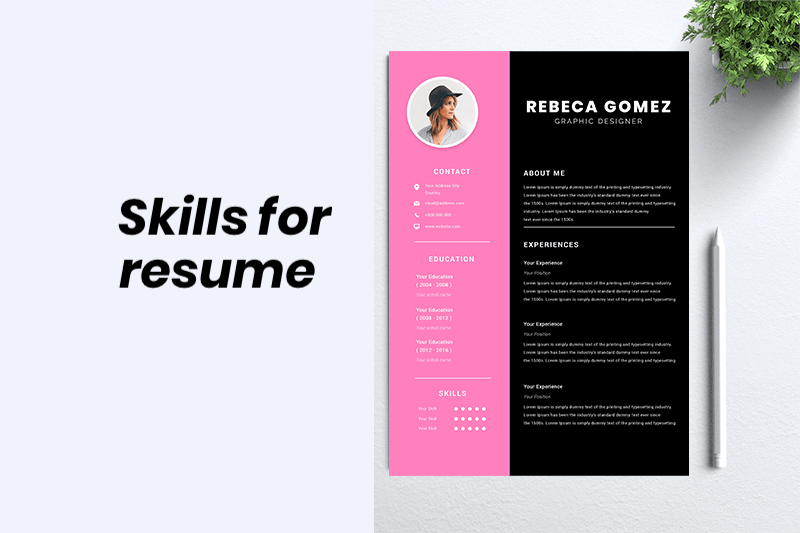Your resume is a powerful tool to showcase your abilities and stand out in the job market. Among its sections, the “Skills” part often receives significant attention from employers. Including the right mix of skills on your resume can demonstrate your qualifications and boost your chances of landing an interview. In this guide, we’ll highlight the 10 best skills to include on your resume and provide tips for tailoring them to your desired role.
Why Are Resume Skills Important?
Employers look for candidates who possess both hard skills (technical abilities) and soft skills (interpersonal traits) to thrive in their roles. The skills section offers a snapshot of what you bring to the table, making it easier for hiring managers to evaluate your fit for the position.
Top 10 Skills to Include on Your Resume
Below are the top skills sought by employers across industries, with examples of how they can make your resume shine.
1. Active Listening Skills
Active listening is essential for collaboration, problem-solving, and understanding team goals. This skill shows employers that you are attentive and capable of effective communication.
Example: “Used active listening to resolve customer complaints, improving satisfaction by 25%.”
2. Communication Skills
Strong written and verbal communication abilities are vital in nearly every job. Whether you’re writing reports or presenting ideas, clear communication fosters better teamwork and project outcomes.
Example: “Prepared and delivered engaging presentations to clients, resulting in a 30% increase in contract renewals.”
3. Computer Skills
Proficiency in software and technology is crucial for modern workplaces. Highlight your technical expertise, such as spreadsheet mastery, programming languages, or design tools, depending on the job.
Example: “Streamlined data analysis by automating reports with Python, reducing processing time by 40%.”
4. Customer Service Skills
Empathy, patience, and problem-solving are key traits for delivering excellent customer experiences. If the role involves client interaction, this skill set can set you apart.
Example: “Handled 50+ customer inquiries daily with a 98% satisfaction rate.”
5. Interpersonal Skills
The ability to build relationships and work well with others is essential in collaborative environments. Showcase your teamwork, emotional intelligence, and adaptability.
Example: “Fostered team cohesion by mediating conflicts and encouraging open communication.”
6. Leadership Skills
Leadership is more than managing people—it’s about inspiring others and driving results. Whether you’ve led a team or a project, this skill demonstrates initiative.
Example: “Supervised a team of 10 to complete a product launch two weeks ahead of schedule.”
7. Management Skills
Time and resource management abilities ensure tasks are completed efficiently. Employers value candidates who can prioritize workloads and stay organized.
Example: “Implemented a task management system, increasing team productivity by 15%.”
8. Problem-Solving Skills
Employers seek individuals who can identify challenges and develop effective solutions. Highlight specific scenarios where your problem-solving made a positive impact.
Example: “Resolved supply chain bottlenecks, reducing downtime by 20%.”
9. Time Management Skills
Time management reflects your ability to meet deadlines and balance responsibilities. It’s especially critical for roles with tight schedules or multitasking requirements.
Example: “Managed multiple projects simultaneously, delivering all on time and under budget.”
10. Transferable Skills
Transferable skills are versatile abilities that apply across industries, such as teamwork, flexibility, or organizational skills. These can be especially valuable if you’re transitioning to a new field.
Example: “Applied organizational skills from event planning to coordinate cross-functional meetings.”
Hard Skills vs. Soft Skills
- Hard Skills: Tangible, teachable abilities (e.g., coding, data analysis).
- Soft Skills: Personality-driven traits (e.g., leadership, adaptability).
Both types of skills are critical for success, and your resume should highlight a balance of the two to appeal to employers.
Tips for Highlighting Skills on Your Resume
- Tailor Skills to the Job Description: Review the job posting and match your skills to the role.
- Include Both Hard and Soft Skills: Show technical expertise and interpersonal abilities.
- Quantify Your Impact: Use metrics to demonstrate the results of your skills in action.
- Position Skills Strategically: List job-relevant skills prominently in your skills section, and weave others into your experience or summary.
Advance Your Career with the International English Test (IET)
Proficiency in English is a highly valued skill in today’s global job market. The International English Test (IET) is an affordable, flexible, and widely recognized certification that aligns with CEFR levels (A1-C2). It evaluates grammar, vocabulary, speaking, and writing skills through AI-powered technology.
Earn an IET certificate to showcase your English proficiency and enhance your resume. With customizable validity options (1 year, 2 years, or lifetime), it’s the ideal solution for students, professionals, and career changers.
Take the first step toward a brighter career today by preparing for the IET and adding this critical certification to your skillset!
Final Thoughts
Including the right skills on your resume can significantly impact your job prospects. By combining technical know-how with interpersonal strengths and backing them with certifications like IET, you’ll present a compelling case to potential employers. Update your resume today, and take your career to new heights!

